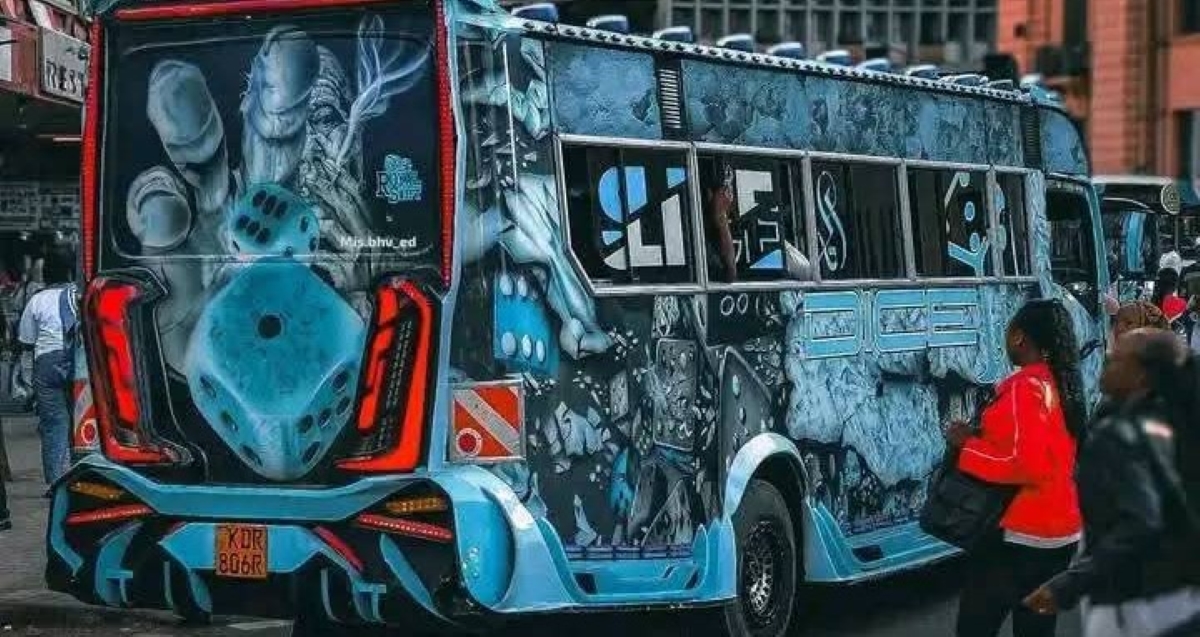The National Transport and Safety Authority in Kenya has issued a directive mandating the immediate removal of graffiti and tint from windows of Public Service Vehicles.
The ban including on PSVs include matatus and buses, to enhance road safety and compliance with traffic regulations.
The order, which became effective on May 27, 2025, targets the vibrant but often obstructive designs and dark tints that have become synonymous with Kenya’s matatu culture, citing their role in reducing visibility and posing risks to passengers and other road users.
The NTSA’s directive requires all Public Service Vehicles (PSV) operators to remove graffiti, stickers, and excessive tint from vehicle windows within a stipulated period, with non-compliance risking fines or impoundment.
The authority emphasized that heavily tinted windows and decorative graffiti obstruct drivers’ visibility, contributing to accidents, and hinder law enforcement’s ability to monitor passenger safety.
The move aligns with the Traffic Act and NTSA regulations, which prioritize clear visibility and safety standards. The directive also responds to public complaints about unregulated PSV aesthetics, which some argue glorify reckless driving.
Kenya’s matatu industry, a vibrant sector known for its colorful designs and urban flair, faces significant changes with this order. Graffiti, often featuring bold artwork, slogans, or pop culture references, has long defined matatu identity, attracting passengers but also criticism for promoting a “hustler” image linked to road indiscipline.
The removal of tints, frequently used for privacy or style, raises concerns among operators about increased exposure to theft or harassment. Matatu owners’ associations have expressed mixed reactions, with some acknowledging the safety benefits while others lament the loss of cultural expression.
The directive has sparked lively debate across Kenya. Commuters have voiced support, citing improved safety and transparency, with some noting that tinted windows often conceal overcrowding or unsafe practices.
However, matatu crews argue the order threatens their livelihoods, as vibrant designs are a key draw for customers. Social media reflects the divide, with sentiments ranging from praise for NTSA’s focus on safety to frustration over the erosion of a cultural staple. Enforcement is expected to intensify, with NTSA inspectors conducting roadside checks to ensure compliance.
The NTSA’s order comes amid broader efforts to reform Kenya’s transport sector, which has faced scrutiny over road safety.
With over 3,000 annual road deaths, according to NTSA data, the authority is under pressure to address preventable causes like poor visibility.
The directive could set a precedent for stricter regulation of PSVs, potentially reshaping the matatu industry’s aesthetic and operational norms.
However, its success will depend on consistent enforcement and engagement with stakeholders to balance safety with cultural heritage.
The NTSA’s mandate to remove graffiti and tint from PSV windows marks a bold step toward enhancing road safety in Kenya, targeting a key contributor to accidents and regulatory violations.
While the move promises safer roads, it challenges the iconic matatu culture, sparking debate over tradition versus safety.
As operators scramble to comply, the directive underscores Kenya’s ongoing efforts to modernize its transport sector while preserving its unique identity.



